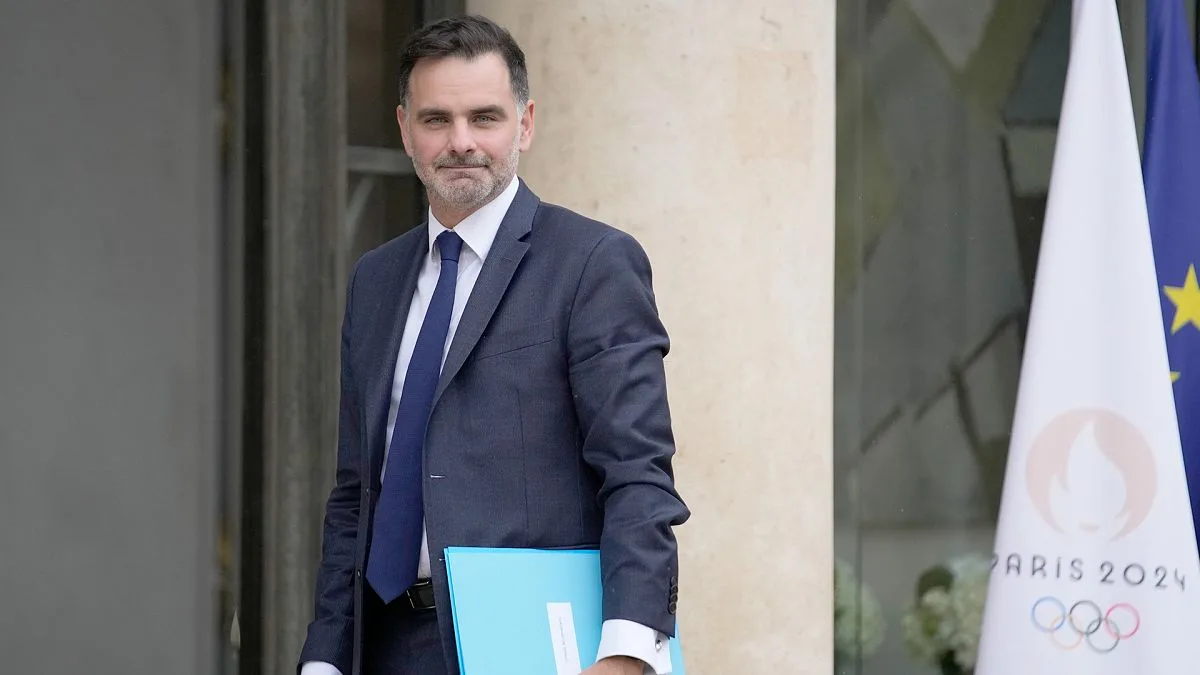France’s ambitious 2025 budget plan is set to make substantial adjustments with a focus on €60 billion in spending cuts and tax increases, all aimed at trimming the national deficit down to 5% of GDP. Despite these efforts, many economists are skeptical about the feasibility of achieving these targets, with some predicting a larger deficit and diminished growth, raising alarms about the sustainability of this tax-driven consolidation.
On Thursday, the French government presented a comprehensive budget plan for 2025, marking a pivotal move towards addressing the escalating deficit. The proposed measures are designed to reduce the budget shortfall to 5% of GDP by the conclusion of 2025, ultimately striving to align with the Maastricht Treaty’s 3% deficit requirement by 2029.
Antoine Armand, the Minister for Economy, Finance, and Industry, alongside Laurent Saint-Martin, the minister overseeing the budget, underscored the critical nature of the situation. They noted in the draft legislation that “the state of our public finances is grave,” and cautioned that without immediate and decisive action, the public deficit could hit 7% of GDP as early as 2024.
Nevertheless, despite the urgency, economists remain doubtful regarding the government’s capacity to curb such a significant deficit in a limited time frame.
Key Measures in France’s 2025 Budget
The 2025 Finance Bill outlines €41.3 billion in spending reductions alongside €19.3 billion in new tax revenues. The anticipated savings include €21.5 billion derived from cuts in state spending. Additionally, €14.8 billion will be restored to the financial health of Social Security, and €5 billion will be saved by moderating local government expenditures.
The plan also entails job reductions across various sectors to streamline public services and lower operational costs, with the Ministry of Education expected to face the largest headcount cut, amounting to over 4,000 positions.
On the revenue side, the government intends to raise €19.3 billion through exceptional and temporary tax measures, largely levied on businesses and high-income households: €13.6 billion will come from increased business taxes, and €5.7 billion from higher taxes on individual earners.
Armand and Saint-Martin affirmed a strict budgetary rule: “For every euro of additional revenue, we will save two euros in spending.”
Economic Projections: Growth at 1.1%, Deficit Decrease to 5%
Economic forecasts predict growth rates of 1.1% for both 2024 and 2025, with inflation expected to decline from 2.1% in 2024 to 1.8% in 2025.
In terms of public finances, the budget deficit is projected to escalate in 2024, potentially reaching 6.1% of GDP, an increase from 5.5% in 2023. However, it is anticipated that the deficit will decrease to 5.0% of GDP in 2025 according to the latest draft budget.
In nominal terms, the budget shortfall is expected to shrink by €31 billion in 2025, resulting in an estimated deficit of €135.6 billion. Conversely, the public debt is projected to rise to 114.7% of GDP by 2025, up from 112.9% in 2024.
Economists Express Caution
Reactions from economists to France’s budget plan have been mixed, with many expressing doubts about its practicality. Ruben Segura-Cayuela, an economist at Bank of America, remarked that while the plan may appear ambitious, excessive ambition could undermine its credibility.
Segura-Cayuela also pointed out that certain aspects of the 2025 adjustments remain “very opaque” and criticized the lack of clarity regarding the fiscal strategy beyond 2026. Furthermore, he voiced skepticism about the plan’s approval.
Goldman Sachs economist Alexandre Stott echoed these sentiments, suggesting that the reliance on tax increases and the scale of the proposed consolidation diminish confidence in the government’s ability to achieve the ambitious 2025 deficit target of 5%. He cautioned that according to past analyses, sudden adjustments and tax-based consolidations are less likely to lead to sustainable improvements in the fiscal position.
Goldman Sachs forecasts a 5.2% deficit for 2025, surpassing the government’s goal, prompting a reassessment of growth predictions for the year ahead.
While Goldman Sachs anticipates that Prime Minister Barnier’s government will pass the budget bill by the end of the year, significant uncertainty looms beyond that point, especially with potential new legislative elections scheduled for July 2025.
BNP Paribas economist Stéphane Colliac noted a possible shift in public opinion favoring austerity measures. He mentioned that recent surveys show that 39% of French citizens deem debt reduction a “very urgent” issue, marking a notable increase in concern compared to the previous year.
Colliac argued that prioritizing spending cuts over tax hikes might succeed where previous efforts have faltered, observing that such an approach has rarely been tried in the past.
Still, he cautioned that with sluggish consumer spending and weakened corporate margins, there is now “low leeway” for further tax increases without hindering economic growth.
Legislative Timeline and Next Steps
The legislative process for the 2025 Finance Bill will adhere to a stringent schedule. Discussions on the revenue components are slated for 21-25 October, followed by a vote on the Social Security financing bill set for 5 November.
The final vote on the 2025 Finance Bill is expected on 19 November, after which it will be sent to the Senate for deliberation, with a completion date by 21 December, in accordance with constitutional deadlines. If discrepancies arise, the National Assembly will have the final authority.
The Constitutional Council may also be consulted to evaluate the constitutional validity of the proposed texts by the end of December.
After the parliamentary proceedings, both the finance law and the social security financing law will be promulgated by the President of France and published in the Official Journal by no later than 31 December, with an intended effective date of January 2025.
Photo credit & article inspired by: Euronews



